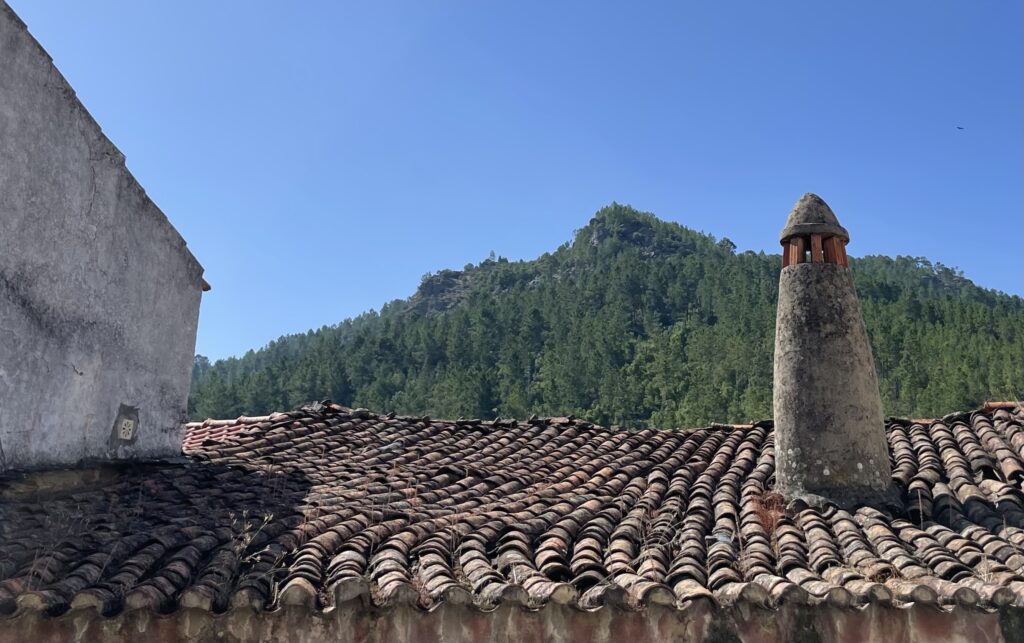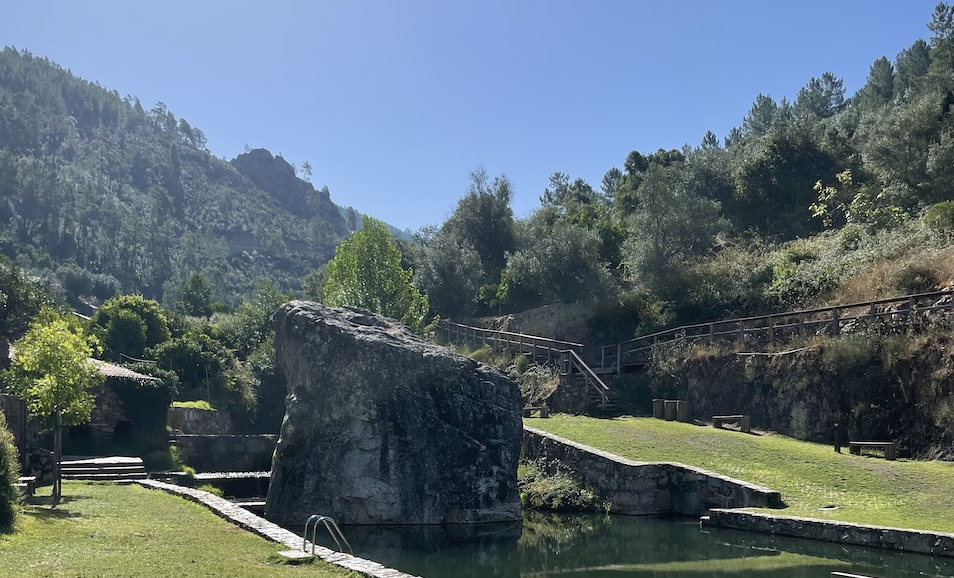There are times when I visit a place so beautiful and have such wonderful experiences there that can’t wait to return and write all about it. These are places that offer me such special moments and I can’t wait to sit down and start crafting a story around that adventure.
“Wow!” I think, “So many metaphors, so many thoughts, and so many parallels with life can be drawn from this as I share the story of this place.” But when the time to sit at the computer comes and I open the text editor, no ideas come to mind. I try to write a sentence or two, and nothing seems good enough. No writing path opens up. No matter how hard I try, it’s a succession of writing and deleting that tests my patience and makes me angry with myself, questioning if writing is really what I want to keep doing.
This is exactly what I’ve been experiencing these past few days, returning from a trip to Foz do Cobrão, a village in the municipality of Mação, in the heart of Beira Baixa. This village is nestled between two watercourses (the Cobrão stream and the Ocreza River) and is a very special place. It was a wonderful visit, but now that I so badly want to write about it, I’m blocked, and nothing that comes from this dance of my fingers on the keyboard seems good enough to honor it. I write and delete, write and delete, growing increasingly frustrated with myself. If writing and storytelling are my passion (which they are!), this shouldn’t be happening to me.
I so much want to talk about the huge boulder that forced the Cobrão stream to find ways to continue its course and, despite that enormous and intimidating obstacle, manage to fulfill its purpose of flowing into the Ocreza River. What a perfect natural metaphor for describing life: a small and unassuming stream that, on its descent down the slopes of Serra das Talhadas, encountered a huge stone right in the middle of its bed. But instead of being intimidated, it persisted. Gathering all the resources that make water one of nature’s most resilient elements, it managed, with gentleness, to circumvent the imposing obstacle. Over the years, the seemingly insurmountable stone was shaped by the water’s persistence. This natural phenomenon gave rise to such a peculiar place that it became stunningly beautiful. But my writing today doesn’t flow like the water. It’s stuck behind the boulder of frustration that grows with my writer’s block.
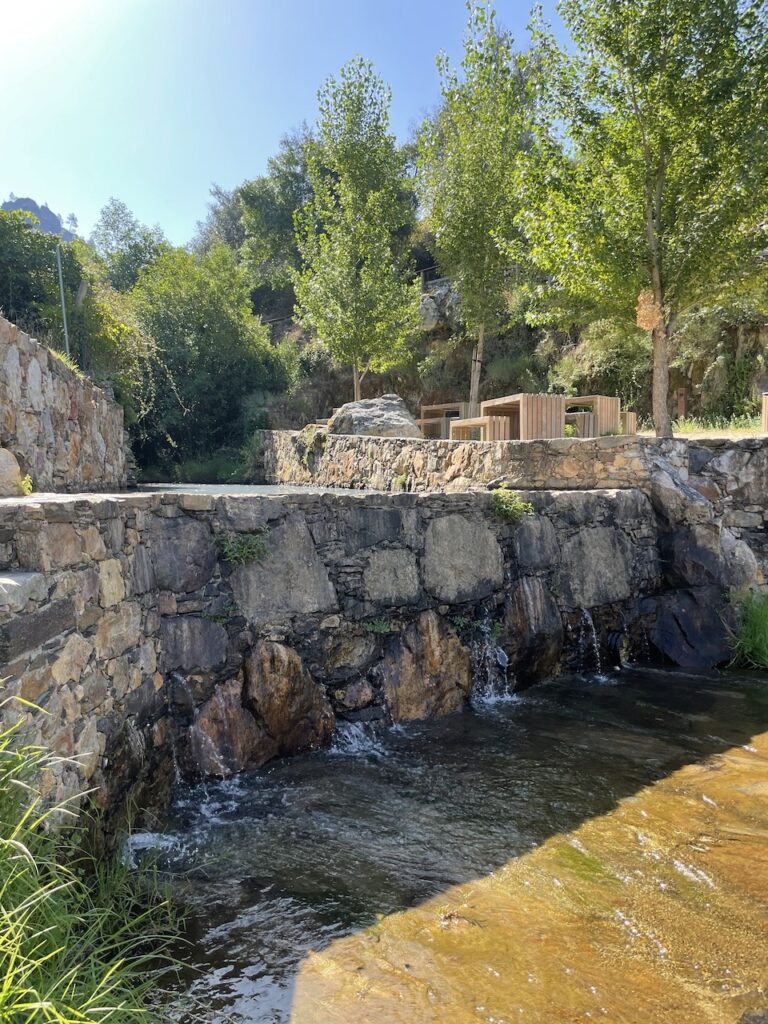
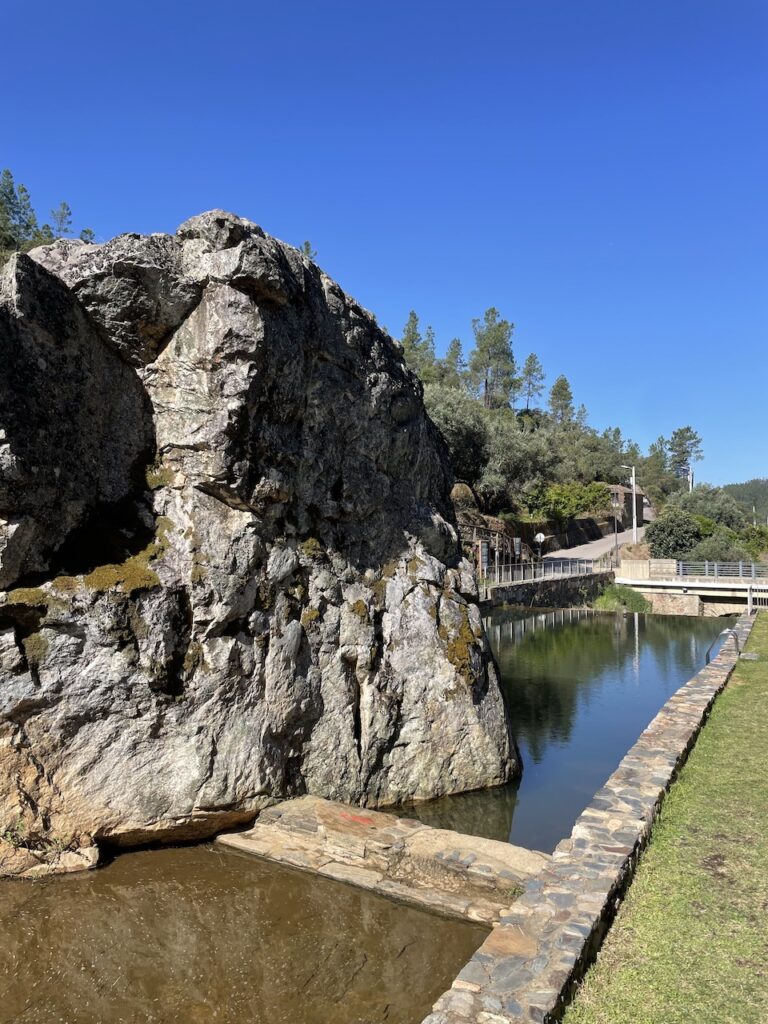
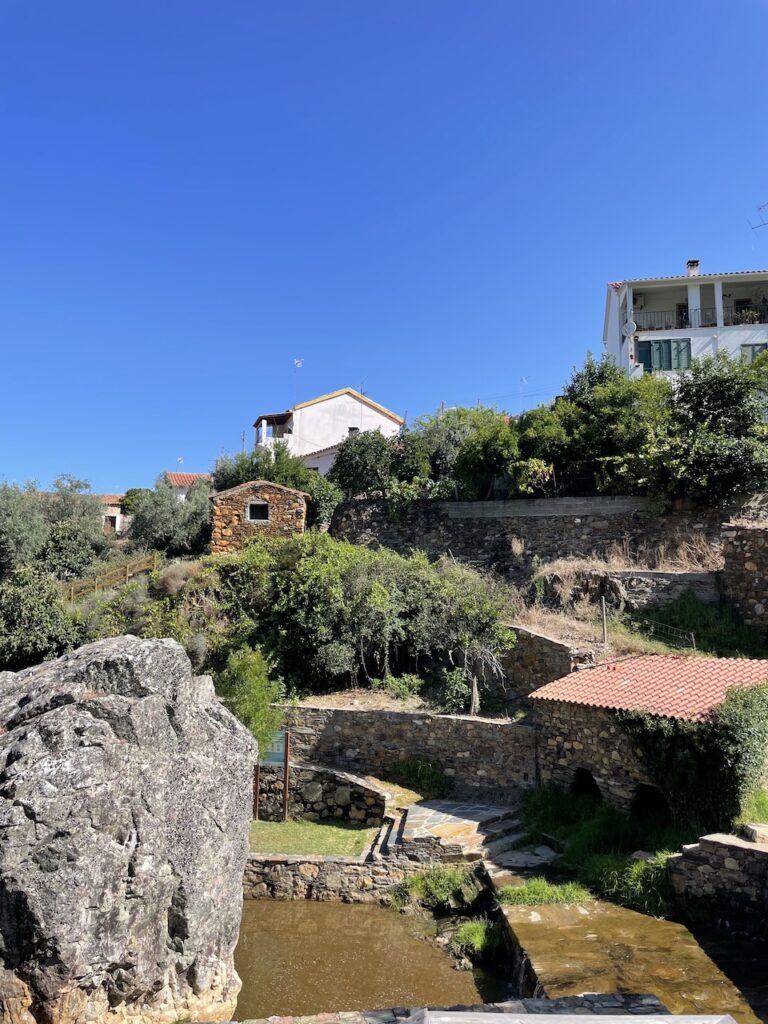
It frustrates me to know it should be easy to let my imagination flow and write another story about how that rare natural phenomenon has captivated the Romans who settled there during their occupation of the Iberian Peninsula. Isn’t that a perfect starting point for developing a narrative about the obstacles life places in our path, the challenges it throws at us, the stones it puts in our way, and how sometimes we don’t have to destroy or overcome them because, with patience and flexibility, they ultimately reveal immense wealth and value in building our purpose?
But no, the pages is still blank. Nothing I write honors the beauty of that place and the surprising history of its early inhabitants. Because there’s more: the Romans, shortly after arriving, deceived by the lush forest and abundant water, quickly discovered that the land wasn’t that fertile for cultivation. Yet, like the water that circumvented the stone, they chose to stay and explore the potential of that seemingly magical place further. Thankfully, they did because the stream indeed hid a precious secret. A secret that needed someone with time and patience to uncover. Small gold particles traveled along the Cobrão stream. It was a contemplative gaze and a prolonged, focused observation that allowed the discovery of this treasure. A treasure that became the reason for the population to not only settle permanently but also to flourish.
Even today, it’s possible to see the “Conheiras” – formed by hundreds of rolled stones resulting from the soil washing for gold extraction – along its course, just a stone’s throw from the village, confirming the gold panning activity in that location over the centuries. What are the odds of such an activity existing in the almost forgotten interior of Portugal and lasting until the first half of the 20th century when gold finally became scarce? But today, I can’t turn this into a beautiful and captivating story.
The highlight of my day was when, while walking through the village streets, I encountered a lady holding a dog on a leash in one hand and a shopping bag in the other. It seemed she was waiting for me to share her story, as beautiful as all the metaphors the village had given me up to that point.
Mrs. Aurora (I call her that because I don’t know her name) approached me, intrigued by my solitary presence in such an unlikely place for an outsider to visit. When I explained that I love to explore precisely unlikely places and write about them, she decided to accompany me on my short walk and tell me how she ended up there.
This charming lady was born and spent her childhood in Foz do Cobrão. She moved to Lisbon in her youth and stayed there, got married, and had a daughter. Despite her life taking root in the capital, deep down, Mrs. Aurora harbored a secret wish to return to her village after retirement and spend her final days in that beautiful yet remote place. She never dared to mention this dream to her husband, daughter, or grandson because the more years passed and their lives solidified in the big city, the more unlikely it seemed to achieve it.
It was precisely her grandson, on a trip to his grandmother’s village during the school holidays, who, upon passing by the village school, said to his mother:
“This is beautiful! This is the school I would like to attend.”
This remark from her son occupied the mother’s mind throughout the return journey to Lisbon. Thanks to the pandemic, she was now working remotely and, on first consideration, found no reason not to fulfill her son’s wish, who was attending a school in Amadora where he faced increasing challenges both academically and socially.
In less than a month, they completed the transfer process for the boy, and the move to the village was done. She brought her parents with her. Mrs. Aurora not only fulfilled her dream of returning to her village but did so accompanied by her entire family. It was a smooth, natural process of redirecting the course of their lives, just like that stream. She ended her story by telling me that since being there for almost a year, not only did her grandson start enjoying school more and getting better grades, but her back pains also improved from all the exercise of walking up and down those cobblestone streets.
“Come and live, too!” she told me before we said goodbye. And I, in my eternal quest for a place to feel at home, whispered to myself:
“Who knows?”
For now, I choose to be inundated by the wisdom of the water and, gently and kindly to myself, allow my fingers to navigate the keyboard, without judging what comes out. And here is the text that finally sprouted out.
What was the lesson learned? I learned that sometimes the biggest boulder we have to overcome is the one we carry within ourselves.
